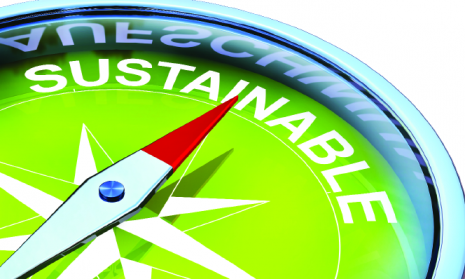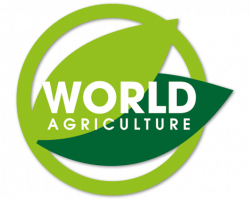What do we mean by Sustainable?

Should we not in editorials pose areas in which solutions might lie and indicate the problems associated with their implementation?
In the last issue we published some estimates of how the world might be able to avoid mass starvation without reducing biodiversity (destroying the environment,), by use of balanced and constructed vegetarian diets.
That article demonstrated that the world could feed itself in 2050, assuming the population changes envisaged by the UN. It also demonstrated that it is possible to develop more sustainable food systems, although the diets would inevitably be rather bland and uninteresting to the consumer. But it would mean a greater extent of food redistribution from temperate to tropical regions?
The article demonstrated that large amounts of external energy would still be needed to produce the fertilizers needed for crop production. It made no estimates of the energy needed for other tasks such as cultivations or crop protection, whether provided by man or machine, or of needs for transport, refrigeration or marketing. In order to develop a fully sustainable system, these energy needs should be met from replaceable systems.
However, things are not as simple as this. If we assume economies continue to grow demand for more and different foods will increase. That will put further pressure of food production. One of these changes which might be anticipated is that people will wish to eat more meat. That will also increase demand on the food production system, simply because the energy and water requirements of livestock production are so great.
Modern life is complex and sophisticated. The infrastructure of the food chain enables Western consumers to have a wide choice of produce throughout the year. However, in large parts of the world humans are already in food deficit, simply because of production constraints, irrespective of conflict. It suggests that already one might be able to argue that any system which limits the output per unit area might be unethical or immoral.
We have constructed a communication system which provides instant, detailed information about diverse issues. Presentations in the media often seek to contrast the differences which emerge in complex debates, rather than inform of the complexities or attempt to find common ground.
Climate change provides an excellent example. This is a complex subject. Subtle changes to the earth’s atmosphere and orbit, as well as solar activity, have significant impacts, the full effects of which may take hundreds of years to develop, so climates change over time. The consensus of informed scientific opinion recognizes that subtle changes to the atmosphere, made by man over many centuries, also affect the earth’s heat balance, leading to general recognition of anthropogenic impacts.
How we respond to these changes attracts significant debate, not just because there are economic implications, but also because any adaptations to our life style or activity needs to be universally acceptable to have any chance of reducing the effects of so called global warming. This is the big problem – “I’m alright Jack”. There is no universal overlord instructing countries what they must do to offset potential problems for which the level of risk of their occurrence is uncertain, until it will be too late to take effective action – that action could mean a lower standard of living at present in order to prevent a possible catastrophic effect on living standards for some future generations – it is nigh impossible for any single democratic government to institute a state of affairs that would be political suicide and put a country at an economic disadvantage vis à vis other competing countries, e.g. green energy policy.)
Debates about feeding the world are similarly complex. Factors such as land availability, changing climates, human nutrition and agricultural technology have fundamental impacts individually and when considered in concert. The problem associated with these factors shares with climate change the fact that each of the factors interacts with one another so it becomes difficult to communicate not just the complexity of the problem but also the multiple levels of interactions*. This makes it difficult for the informed specialist to present the facts in simple, readily understood ways, not only to policy makers but also to the general public, who need facts to help them understand ‘the big picture’.
*Examples are: “are the current floods/storms in the UK caused by climate change?”
“Is climate change man made”. Therefore if we stop using fossil fuels will these storms be a thing of the past – Yes of course they will never occur again ah?
This journal highlights these issues and helps readers to comprehend the complex factors and we hope facilitates rational decision making on agricultural and environmental issues.

